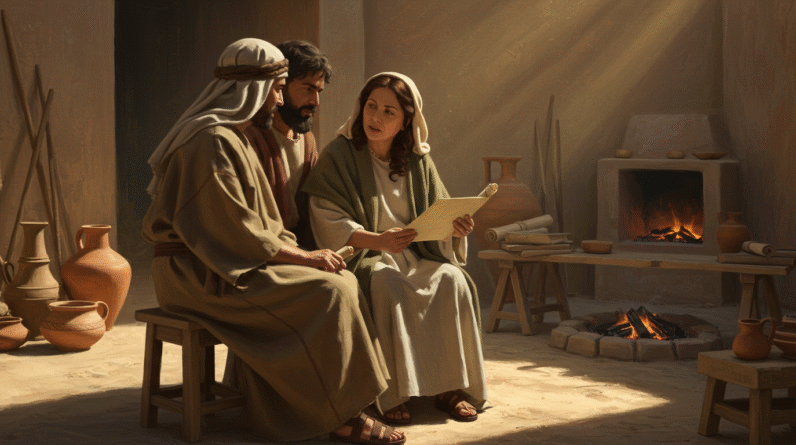Explore the pivotal yet overlooked role of faithful women in early church ministry. Discover their courage, leadership, and enduring impact in shaping early Christianity.
Faithful Women in Ministry in the New Testament
In the realm of early Christianity, the contributions of women were pivotal. Often overlooked, these women illuminated the path of the burgeoning church with their unwavering faith and dedication. Understanding their roles not only sheds light on the early church but inspires contemporary believers to navigate their spiritual journeys. As we traverse the stories of these remarkable women, we discover timeless lessons of faith, courage, and leadership.
Historical and Biblical Context
The Role of Women in the 1st-Century Church
In the first-century world, societal norms often limited women’s roles to domestic spheres, yet the early church presented an unorthodox landscape where women contributed significantly. Against the backdrop of a patriarchal society, women emerged as pillars within nascent Christian communities. Their impact was profound, not confined by cultural constraints, and boldly embraced the call to partake in ministry and propagate the gospel.
Biblical Foundations and Perspectives
Scriptures affirm the involvement of women in ministry, positioning them as key figures in advancing the Christian faith. Consider the directive in Romans 16:1, where Paul commends Phoebe, a deacon and a benefactor of many, reflecting the early church’s inclusion and reliance on women’s leadership. These depictions assert God’s affirmation of women in ministry, encouraging both historical and contemporary engagement.
Profile of a Faithful Woman in Ministry
Priscilla: A Teacher and Church Leader
Name and Identity
Priscilla, a woman of profound influence, appears in several New Testament scriptures alongside her husband, Aquila. Rooted in a cultural and historical context where Judaism intersected with Greco-Roman influences, Priscilla emerged as a formidable force in early Christian ministry.
Ministry and Contribution
Priscilla’s contributions are multi-faceted. Described as a tentmaker like Paul, she, along with Aquila, became pivotal in teaching and supporting the early church. Notably, in Acts 18:26, Priscilla and Aquila expounded the way of God more accurately to Apollos, demonstrating her role as both an educator and a leader in the faith community.
Lessons from Her Life
Modern believers can draw inspiration from Priscilla’s commitment to spreading the gospel and educating others in the faith. Her story underscores a powerful testament to partnership in ministry, highlighting themes of faithfulness and collaboration, pertinent to today’s church dynamics. By embracing her model, contemporary women can step confidently into roles of teaching and leadership, echoing Priscilla’s legacy.
Impact on the Early Church
Women like Priscilla played an instrumental role in the propagation of Christianity. Their collaboration with early apostles like Paul showcases a dynamic partnership that transcended cultural limitations. While historical records may not capture every detail of their contributions, the impact resounded through the growth and stability of the early church. These women stood as beacons, their legacy a testimony to enduring faith and perseverance.

Application for Today
The stories of these faithful women extend beyond the pages of biblical history, reaching into the present with lessons and inspirations for today’s ministry landscape. Encouragingly, their stories speak to women in ministry today, motivating them to embrace their callings with conviction and courage. Communities are urged to recognize and uplift women’s unique contributions, fostering an environment where both men and women collaborate in service to God’s kingdom.
Practical actions such as mentorship, teaching, and community service become avenues through which believers can emulate these early church women, infusing contemporary ministry with their tenacity and vision.
Conclusion
In revisiting the lives of these extraordinary women, we are reminded of their enduring legacy and the profound impact of their contributions to early Christianity. The stories of these faithful women call us to action, challenging us to honor their legacy by engaging fully in our ministry callings. Let us take heart from Colossians 4:15, recognizing and greeting those who open their homes and hearts to the church, continuing in the footsteps of those who paved the way.
Acknowledgment: All Bible verses referenced in this article were accessed via Bible Gateway (or Bible Hub).







